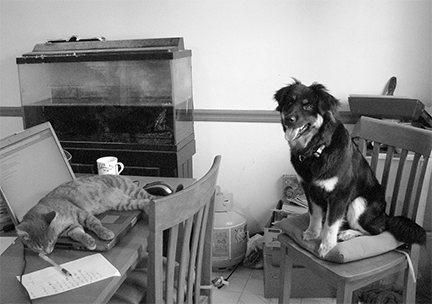
Have you ever heard, “We feel you’re overqualified for this position”? Talk about feeling like a deflating balloon! How can you salvage an opportunity in this situation?
If you have an interview coming up where you suspect a discussion about being overqualified will arise, prepare ahead of time. In this situation, remember a hiring manager is most likely concerned about:
• Why you’re considering the position
• Your leaving if you come across a better job somewhere else
• If they can meet your expectations and how long you’ll be happy in this position
So you will need to address these concerns as they surface. In my interview for the job at the security guard and custodial company, the GM straight out asked me, “So how do I know you won’t leave and go back to the music industry?” I was honest and explained my situation and career plans and answered his question sincerely, trying to build his confidence that I was not wanting this job as a short-term holdover. (I got the job.) Most interviewers can gauge your sincerity.
Career and interviewing coach Alex Freund advises this strategy: When you get a sense that a hiring manager is labeling you as overqualified, quickly try to discern the root of what he’s getting at…concern that the salary for the job is too low, that you’ll quit for another job in the near future, etc. Employers don’t like turnover.
Then, say something like, “I’m sensing you’re concerned that money is my main motivator and that I’ll take a higher paying position elsewhere as soon as I find one. Is that it?” After the inevitable affirmative response, follow up with, “I do have some rich work experience, but ___ (the company at which you are interviewing) is of particular interest to me because of ___ (your reasons). If I can illustrate that salary is not my primary motivator, would that influence your consideration of me as a candidate?”
Then, round out the discussion with some examples of how things like teamwork, recognition, work environment, the type of work, and/or career advancement are also valuable to you, and mention that money isn’t all that’s important in the job you’re seeking. Being able to talk honestly about a legitimate concern (and potential disadvantage) without getting your feathers ruffled can show your true interest in the position and also build rapport with the interviewer. He may even respect you more, and at the very least, you’ve cast a positive light on yourself as a viable candidate.15
Alternately, your response could be as simple as, “Frequently I seem to be pigeonholed as overqualified. I feel that being satisfied in a job and having a good fit and a fair salary with room for growth (monetarily and positionally) are more important than whether a position initially seems to completely mirror my education and work history.” Feel out the situation, and use your judgment.
Looking for a new job? Want to get the one you want faster? Check out my new book, Here Today, Hired Tomorrow.

